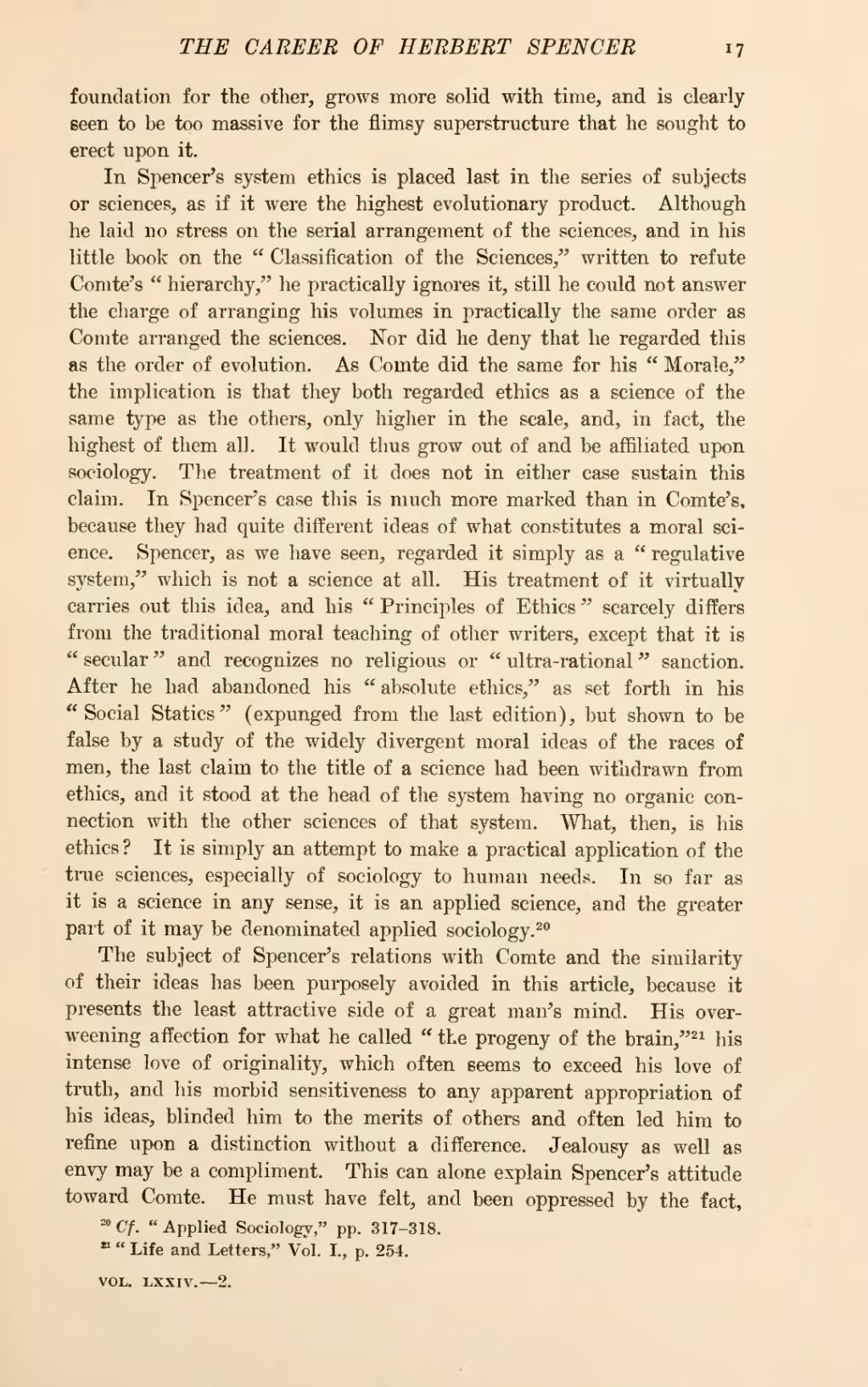foundation for the other, grows more solid with time, and is clearly seen to be too massive for the flimsy superstructure that he sought to erect upon it.
In Spencer's system ethics is placed last in the series of subjects or sciences, as if it were the highest evolutionary product. Although he laid no stress on the serial arrangement of the sciences, and in his little book on the "Classification of the Sciences," written to refute Comte's "hierarchy," he practically ignores it, still he could not answer the charge of arranging his volumes in practically the same order as Comte arranged the sciences. Nor did he deny that he regarded this as the order of evolution. As Comte did the same for his "Morale," the implication is that they both regarded ethics as a science of the same type as the others, only higher in the scale, and, in fact, the highest of them all. It would thus grow out of and be affiliated upon sociology. The treatment of it does not in either case sustain this claim. In Spencer's case this is much more marked than in Comte's, because they had quite different ideas of what constitutes a moral science. Spencer, as we have seen, regarded it simply as a "regulative system," which is not a science at all. His treatment of it virtually carries out this idea, and his "Principles of Ethics" scarcely differs from the traditional moral teaching of other writers, except that it is "secular" and recognizes no religious or "ultra-rational" sanction. After he had abandoned his "absolute ethics," as set forth in his "Social Statics" (expunged from the last edition), but shown to be false by a study of the widely divergent moral ideas of the races of men, the last claim to the title of a science had been withdrawn from ethics, and it stood at the head of the system having no organic connection with the other sciences of that system. What, then, is his ethics? It is simply an attempt to make a practical application of the true sciences, especially of sociology to human needs. In so far as it is a science in any sense, it is an applied science, and the greater part of it may be denominated applied sociology.[1]
The subject of Spencer's relations with Comte and the similarity of their ideas has been purposely avoided in this article, because it presents the least attractive side of a great man's mind. His overweening affection for what he called "the progeny of the brain,"[2] his intense love of originality, which often seems to exceed his love of truth, and his morbid sensitiveness to any apparent appropriation of his ideas, blinded him to the merits of others and often led him to refine upon a distinction without a difference. Jealousy as well as envy may be a compliment. This can alone explain Spencer's attitude toward Comte. He must have felt, and been oppressed by the fact,

